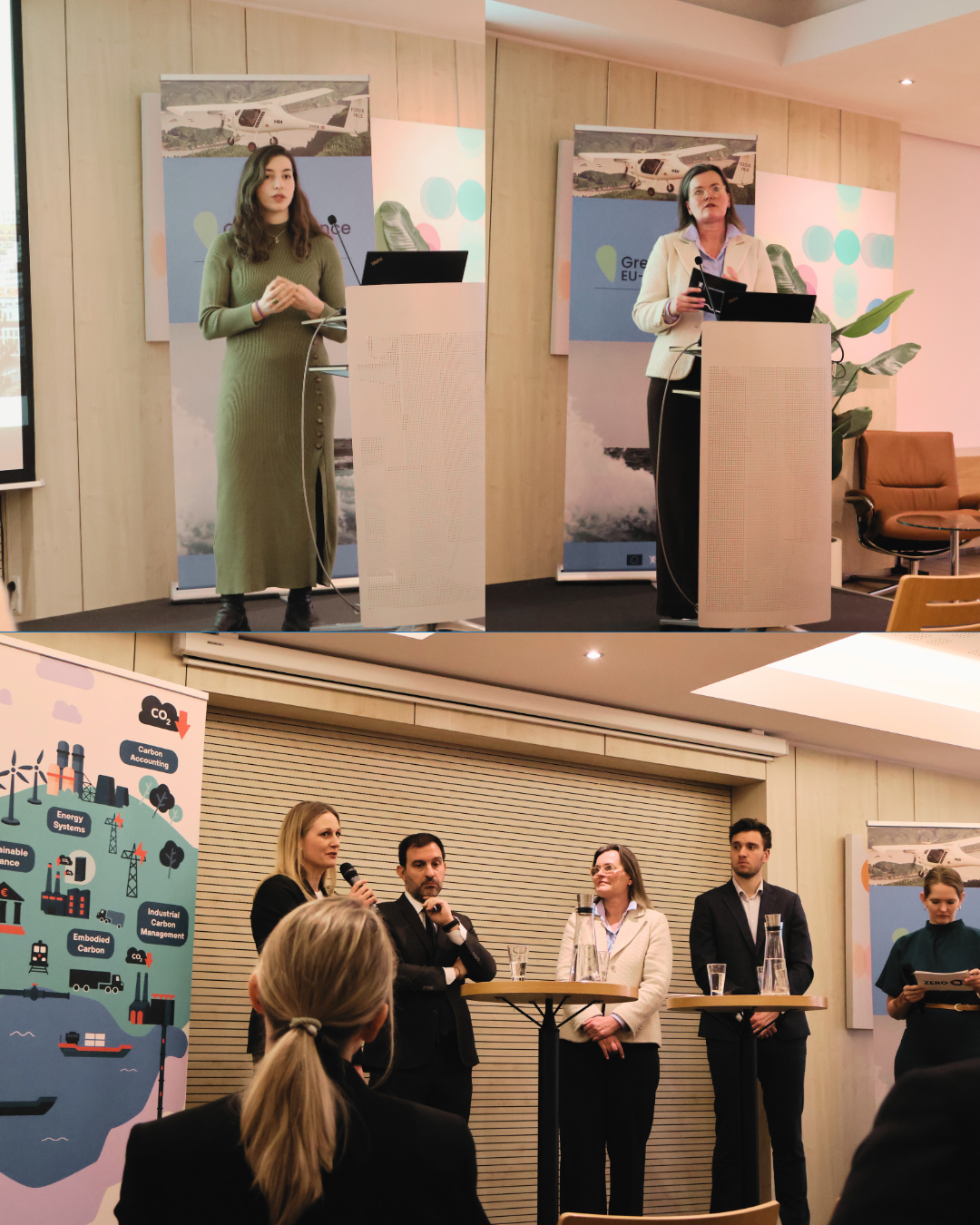
Joint letter – ICC reform and expansion risks diverting ETS Revenues from real climate action
In light of the European Commission’s ongoing considerations to amend the ETS State Aid Guidelines, revising the rules for Indirec...
News

Publish date: October 3, 2017
News
BRUSSELS – A new report co-authored by HeidelbergCement and Bellona Europa, on behalf of the Zero Emissions Platform, delves into the various options energy-intensive industries have to stay competitive in a low-carbon economy. The report highlights the options which are both realistic and offer substantial emissions reductions while noting the ones that have the potential to be the costly distractions that will derail Europe on the path to 2oC.
The current political context, more than ever, calls for decarbonisation technologies to be rigorously assessed and selected according to their GHG mitigation potential. With the low ambitions of the Low Carbon Economy Roadmaps for 2050 lagging behind the Paris Agreement, it is crucial to analyse the ways to achieve these reductions in energy intensive industries. The newly published report of the Zero Emissions Platform therefore evaluates the potentials of electrification, Carbon Capture and Utilisation (CCU) and Carbon Capture and Storage (CCS) as solutions for industrial decarbonisation.
Little renewables, lots of industry to decarbonise
More often than not, there is an impression that electrification can be the silver bullet that solves the industrial emissions conundrum. Whereas wind turbines and solar panels can certainly help decarbonise industries, an array of technologies will be needed to enable industries such as cement to become carbon neutral. When CO2 emissions are a product of production-specific chemical processes and not the combustion of fossil fuels, renewable energy sources can’t do much to help.
There is more than one limit to electrification – the analysis of data published by the chemical industry association CEFIC shows that decarbonisation of Europe’s chemical production – just one of the sectors in question – via electrification would require more than twice (+140%!) the EU’s entire current electricity generation. With renewables sorely needed to decarbonise that current electricity production, the ZEP report concludes that electrification alone is not a viable pathway for decarbonising Europe’s heavy industry within a timeframe relevant to the Paris Agreement goals.
Complementary solutions
The report concludes that, to achieve the lions share of emissions reductions in energy intensive industries, the CO2 produced must be stored (Carbon Capture and Storage – CCS). In addition to storing the CO2 permanently, there are some forms of Carbon Capture and Utilisation (CCU) that might (and some that might not) contribute to climate change mitigation.
CCU in particular has been gaining traction as a supposedly cost-effective way of addressing industrial carbon emissions in Europe. That potential, however, varies greatly across the broad spectrum of CCU technologies, ranging from the climatically useless to the useful. Whereas some CCU products only hold the CO2 stored for a few months and then release it back into the atmosphere, some can act as permanent storage within the relevant timeframe for halting dangerous climate change.
This broad range of emissions reduction potentials calls for a clarification, which the report provides by sorting through the various emerging markets for CO2 (re)use:
‘’There’s a lot of misconceptions about the climate benefit of various technologies’’ says Jonas Helseth, the director of Bellona Europa.
‘’We hope that the report will contribute to the debate in a constructive manner and clarify some common misconceptions around CCU, as well as the prevailing assumption that there will be a vast oversupply of renewable electricity in the near term, that will solve all emission challenges’.
Such clarification is more than welcome at a time when some CCU products are already included in proposed future EU legislation without a robust (or any) life cycle assessment. Synthetic fuels produced from recycled fossil-derived CO2 as included in the revised Renewable Energy Directive could potentially, as our latest report emphasises, have serious detrimental impacts on efforts to reduce emissions – both in industry and transport.
Along with the lifecycle of the product and CO2 source of various CCU solutions, the report considers the potential market size for different CCU products and processes in Europe, concluding that the emerging markets for CO2 (re)use will only be able to address a minor portion of the emissions that will need to be abated to meet climate targets.
What we do with industrial CO2 now will make or break our prospects for a low carbon future – ultimately, we will have to pull it out of the atmosphere and store it for very long periods of time, in one way or another. As Dr. Graeme Sweeney, Chairman of ZEP emphasised, long lasting storage of that CO2 will be the key to achieving the goals we have set:
‘’If we are to have any hope of meeting the goals of the Paris Agreement, CCS is absolutely critical. Europe needs to urgently deliver the CO2 transport and storage infrastructure that will service a large number of sectors and create industrial CCS clusters. Such clusters open up opportunities to link to hydrogen networks, CCU and the provision of negative emissions and will enable the lowest cost route to sustainable growth in key regions across Europe.”

In light of the European Commission’s ongoing considerations to amend the ETS State Aid Guidelines, revising the rules for Indirec...

On 24 February 2025, Bellona Europa co-hosted a breakfast seminar at Norway House in Brussels alongside ZERO and the Mission of Norway to the EU, bringing together policymakers, manufacturers, and procurement practitioners around a single conviction: European cities hold a decisive and largely untapped lever for decarbonising construction. With the revision of the EU Public Procurement Directives on the horizon, the moment to use it is now.

Opening remarks and future of EU CRCF Market Christian Holzleitner, Head of Unit for Land Economy and Carbon Removals&nb...

Together with six NGOs and five industry partners, Bellona Europa signed a joint letter on the RFNBO Delegated Act, reiterating that now is not the t...

“The Commission shall monitor the situation at Union level with a view to monitoring the impact of the CBAM on the Union i...
Get our latest news